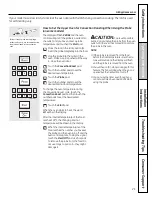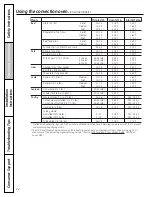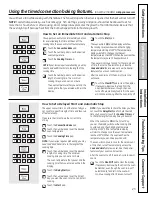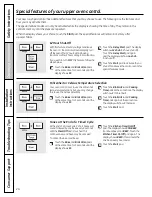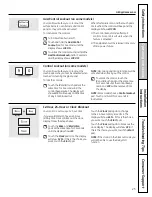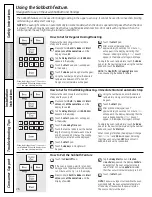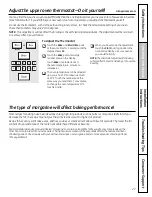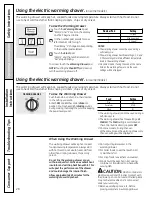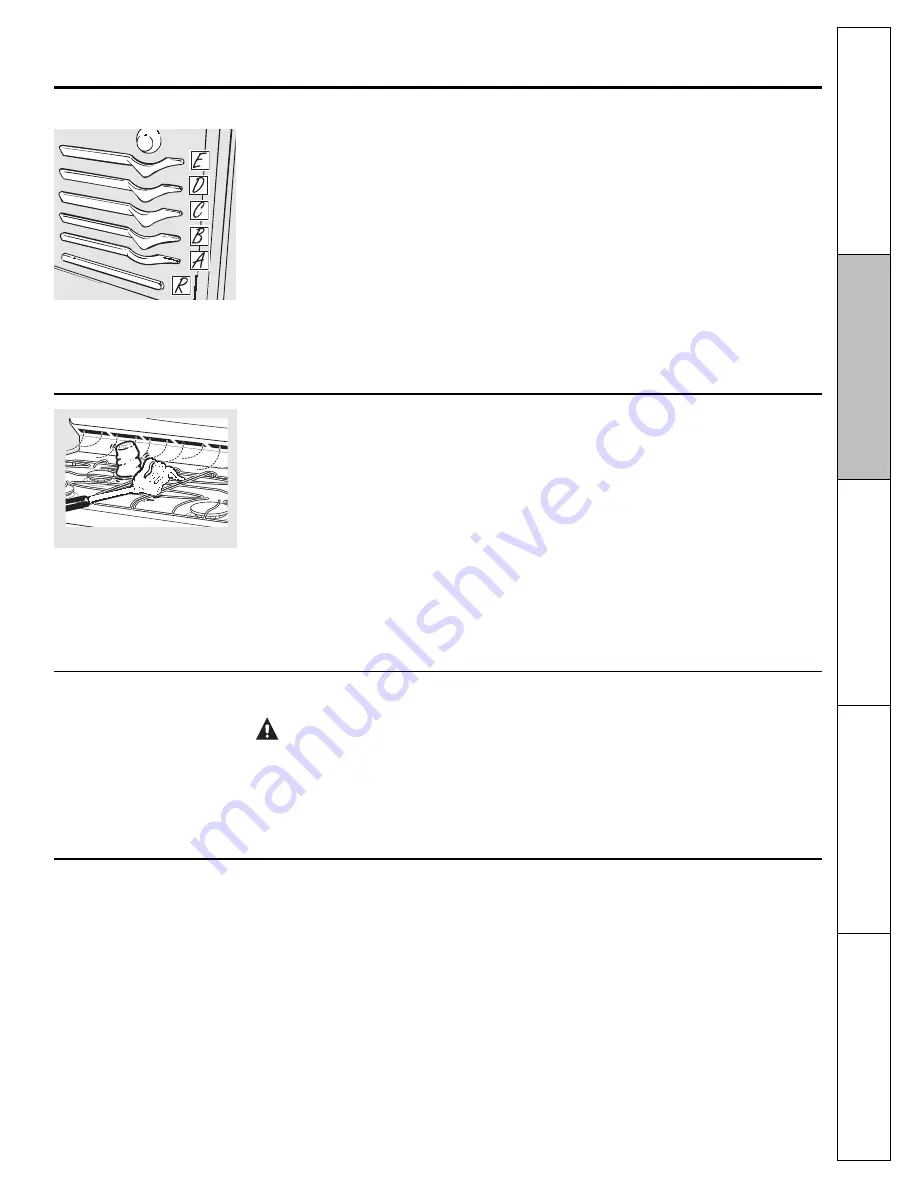
Co
ns
um
er
S
up
po
rt
O
pe
ra
tin
g I
ns
tru
cti
on
s
Sa
fe
ty
In
str
uc
tio
ns
In
sta
lla
tio
n
In
str
uc
tio
ns
Tro
ub
les
ho
ot
in
g T
ip
s
Using the upper oven.
GEAppliances.com
13
To avoid possible burns, place the racks in the desired position before you turn the oven on.
Before you begin…
The racks have stop-locks, so that when
placed correctly on the rack supports
(A through E), they will stop before coming
completely out, and will not tilt.
When placing and removing cookware,
pull the rack out to the bump on the rack
support.
To remove a rack,
pull it toward you, tilt the
front end up and pull it out.
To replace,
place the end of the rack
(stop-locks) on the support, tilt up the front
and push the rack in.
NOTE:
The rack is not designed to slide out
at the special low rack (R) position.
The oven has 5 rack positions.
It also has a special low rack position
(R) for extra large items, such as a large
turkey.
Power Outage
CAUTION:
Do not make any
attempt to operate the electric ignition oven
during an electrical power failure.
The oven or broiler cannot be lit during a
power failure. Gas will not flow unless the
glow bar is hot.
If the oven is in use when a power failure
occurs, the oven burner shuts off and cannot
be relit until power is restored. This is because
the flow of gas is automatically stopped and
will not resume when power is restored until
the glow bar has reached operating
temperature.
Upper Oven Light
Touch the
Oven Light
pad on the upper
control panel to turn the light on or off.
On some models, the
Oven Light
switch
is on the lower front control panel.
Upper Oven Vent
Your oven is vented through ducts at the rear
of the range. Do not block these ducts when
cooking in the oven—it is important that the
flow of hot air from the oven and fresh air
to the oven burner be uninterrupted. Avoid
touching the vent openings or nearby
surfaces during oven or broiler operation—
they may become hot.
n
Handles of pots and pans on the cooktop
may become hot if left too close to the vent.
n
Do not leave plastic or flammable items on
the cooktop—they may melt or ignite if left
too close to the vent.
n
Do not leave closed containers on the
cooktop. The pressure in closed containers
may increase, which may cause them
to burst.
n
Metal items will become very hot if they are
left on the cooktop, and could cause burns.
Plastic items on the cooktop may melt
if left too close to the vent.
Vent appearance and location vary.





















